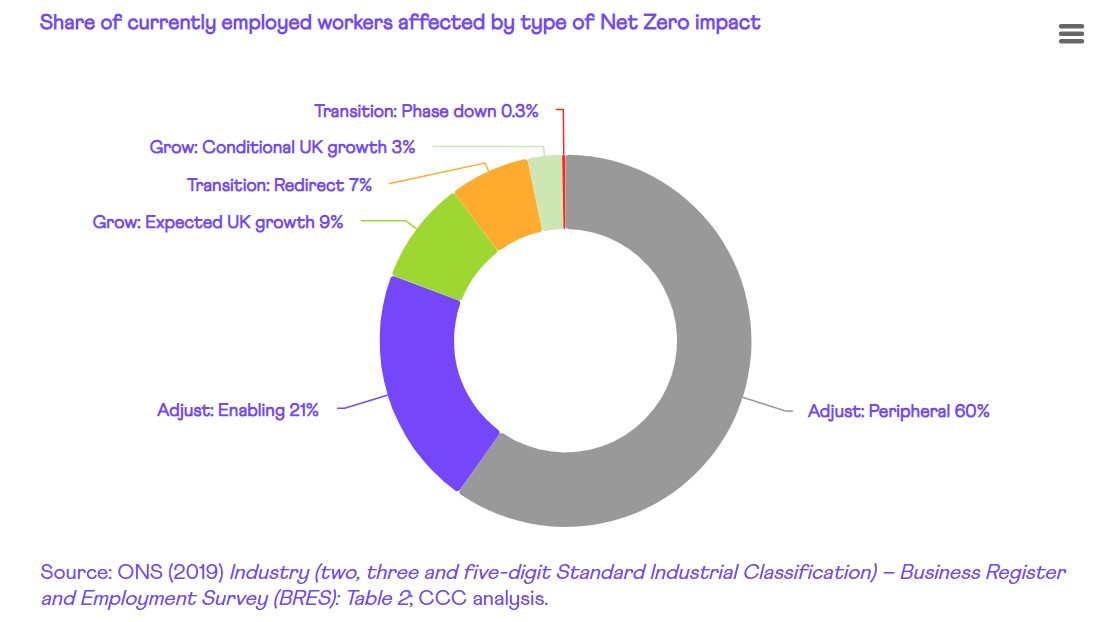
The CCC stated that net zero has already provided around 250,000 new jobs with this figure expected to rapidly increase by the turn of the decade. Image: Getty.
A new report by the Climate Change Committee (CCC) has shown that a net zero transition – including the uptake of solar photovoltaics (PV) – could create in upwards of 725,000 net jobs.
Released in the organisation’s A Net Zero workforce report, the CCC stated that net zero has already provided around 250,000 new jobs as part of the transition so far with this figure expected to rapidly increase by the turn of the decade.
However, the report warned that clearer plans will be needed to harness the potential of the transition and to manage its risks with a “hands-off approach” expected to not work, the CCC said.
The majority of UK workers are to not see any major impacts from the transition, the report found. It also stated that the “full workforce opportunities will only be realised with stronger policies to harness the potential and manage the risks”.
“The UK has committed to net zero. The only question is whether the Government intends to get there in a way that benefits workers or leaves them behind,” said Lord Deben, chairman of the Climate Change Committee.
“This is a unique moment to tailor our approach to skills and jobs, in the certainty of achieving the legal goal. A net zero workforce means secure employment for the future. This is an opportunity for the Government to bring real meaning to ‘levelling up’.”

Graph: CCC.
Despite the majority of UK workers expected to see no major impact from the transition, the largest changes are in sectors with a core role in the delivery of net zero. The CCC said that this represents only a fifth of the current total workforce.
Two-thirds of these core workers are in sectors that can grow over the transition, especially buildings construction and retrofit and electric battery manufacturing.
However, around 7% of UK workers are in sectors that will gradually redirect their products and services. These are largely sectors that will transition from the use of fossil fuels to low-carbon methods, including cement and steel.
Net zero also presents an opportunity for economically deprived areas via the ability to direct the necessary programme of investment.
The report outlined that the “first major UK sites for decarbonised industry are expected to be in The Humber and South Wales, exploiting hydrogen and carbon capture. Other clusters could be located in Grangemouth in Scotland, Teesside, Merseyside and Southampton. These areas already employ manufacturing workers – the North of England, the East Midlands, and Yorkshire and the Humber represent 16%, 9%, and 21% of energy-intensive manufacturing jobs respectively”.
This article was taken from our sister site Current±. The full version can be found here.

